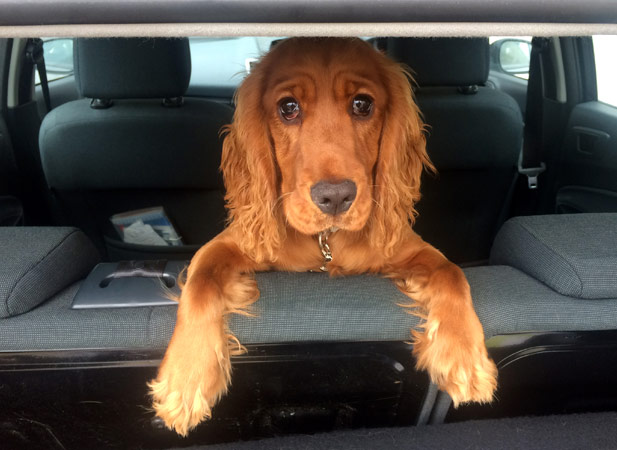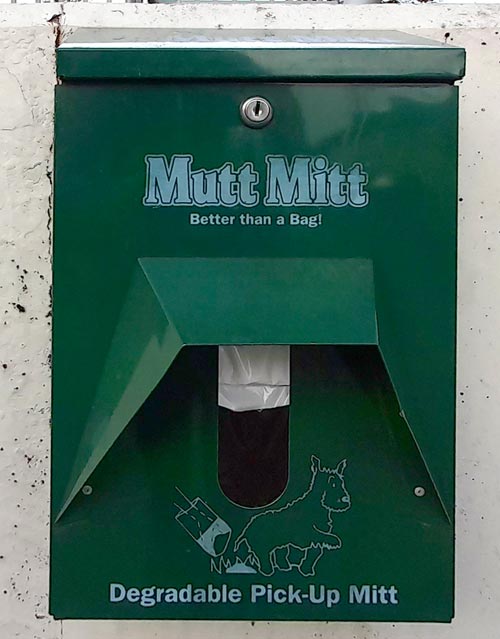Thurles as a midland town has everything one could wish for; Theatres, Nightclubs, a Swimming pool, Gyms, a Museum, a County Library, excellent Shops, Restaurants, Hotels, Top Primary & Secondary Schools, Two Excellent Third Level Institutions and a very low crime rate. Indeed, as a place to live you could not find better, with caring neighbours and for the moment at least, affordable housing.
The Covid-19 pandemic in Co. Tipperary has seen an upsurge in the purchase of dogs as household pets. In turn, prices for dogs have soared in value and lockdown has even led to a higher business turnover for vets, because of this wish to increase canine ownership.
During lockdown people have turned to ‘man’s best friend’ for comfort and support and dogs have been a positive addition, great company and even protection for those living alone in many homes.
This sudden increase in dog ownership has regrettably demonstrated a negative side also. One major downside for people residing in Thurles, (whether they own a dog or not), has been an increase in dog fouling around our streets and public park areas. This has suddenly given an annual voice to some local councillors and to community activists, latter with an eye to becoming possible future councillors.

With more people out exercising their new dogs, instances of dog defecation on footpaths have risen somewhat and many local residents have become mildly annoyed by the problem, especially those whose homes directly open unto footpaths and road frontage.
Dog Fouling – One Solution.
If dog fouling is a problem on our streets, what can we do to solve it and who can we turn to for help?
Local authorities are responsible for the control of dogs under the Control of Dogs Act 1986. They can appoint dog wardens, impose fines and take court action against dog owners. Tipperary County Council currently employ two dog wardens.
Although one might be quick to criticise Tipperary County Council officials and their appointed dog wardens, for failing to deal with the situation, dog fouling is a nationwide problem that all Municipal District Councils are finding extremely difficult to manage.
Why? Because Dog fouling is almost impossible to police under current legislation. To impose a fine on a dog owner who lets their dog defecate on a footpath without appropriate remedy; you need to catch them in the act and they have to refuse to clean it up. Most people when directly shamed or threatened with a fine by the dog warden, will pick up their dog’s faeces.
Under these conditions, it’s not realistic to expect a dog warden alone, to deal with such issues, especially when one also considers the fact that the majority of people walk their dogs early in the morning and late in the evening, when the dog warden is off duty.
With few onlookers and the public in general reluctant to shame such individuals into compliance, and with the dog warden’s back turned, it is a temptation during quieter times of the day to leave dog faeces on the footpath.
Thankfully, this issue has already been recognized at government level. The existing laws to deal with dog fouling are now recognised as being inadequate. A more logical and practical approach to policing irresponsible dog owners has been proposed through a Bill (Deputy Seán Crowe TD, Dublin South West), to amend the Litter Pollution Act of 1997. Mr Crowe seeks to amend existing legislation to, “make it an offence for a person, in charge of a dog in a public area, to fail to produce evidence of having a suitable bag or other instrument with which to dispose properly of dog faeces, when requested to do so by a dog warden, a litter warden or a member of An Garda Síochána”.
This proposal Bill therefore if adopted, (and there is every probability that it will be unobstructed) will make recent local radio and press reports almost antiquated.

More However Is Still Needed
More effective policing is certainly one solution, but much more is also needed. Once a dog owner picks up their dog faeces, it is vital that they have a suitable place to dispose of it. This is one small area where Tipperary County Council can do more; by simply installing an adequate network of bins on our streets and in our park lands. At least then, dog owners won’t be deterred from cleaning up, in the knowledge they are no longer forced to carry dog faeces on their person, over long distances.
To be fair to Tipperary County Council, same have provided dispensers and free bags (Mutt Mitt a degradable pick-Up Mitt), and raised awareness of the issue.
Dog fouling is not only an unsightly and filthy nuisance, but it is also a dangerous health risk. Dog faeces can expose us to illnesses, with children and pregnant women most at risk. Toxocariasis, an albeit rare condition, can be contracted from infected dog faeces and can cause organ damage and eye disease.
“Every problem has a solution and if a problem doesn’t have a solution, then it’s a fact of life, legislate or live with it.”
There’s a wise old saying, “Every problem has a solution and if a problem doesn’t have a solution, then it’s a fact of life, legislate or live with it.”
Dog fouling doesn’t have to be a fact of of life, but the solution to the problem of dog faeces isn’t simple either. It will involve a combination of better legislation, policing, deterrents, facilities, education and greater public awareness.
Tipperary County Council will have a lot more work to do, to change dog owners mindsets, but in the end local pedestrians, prampushers and cyclists will be extremely grateful and supportive.

Leave a Reply